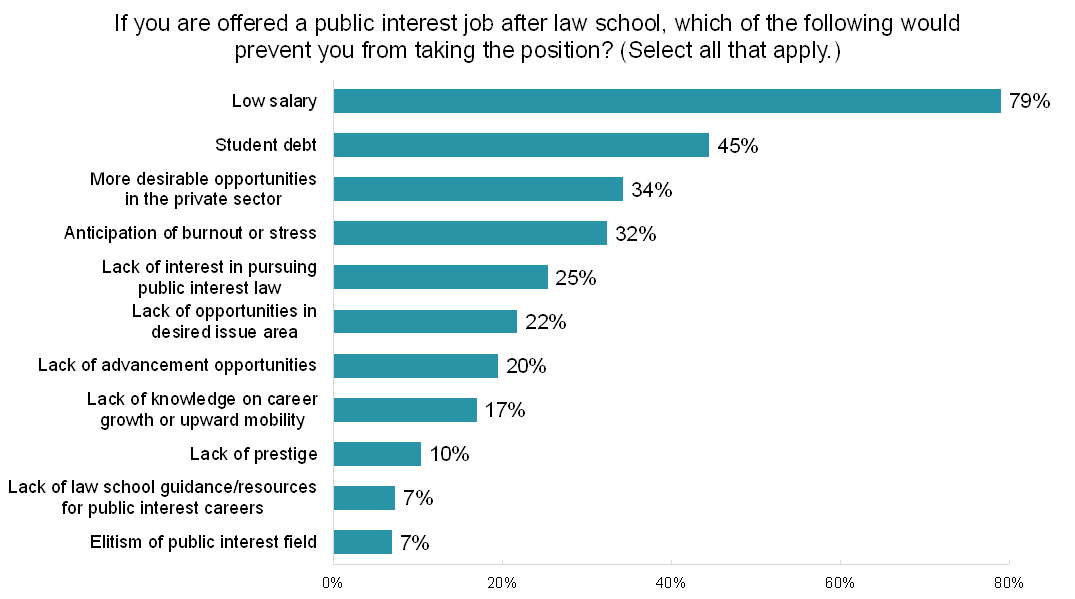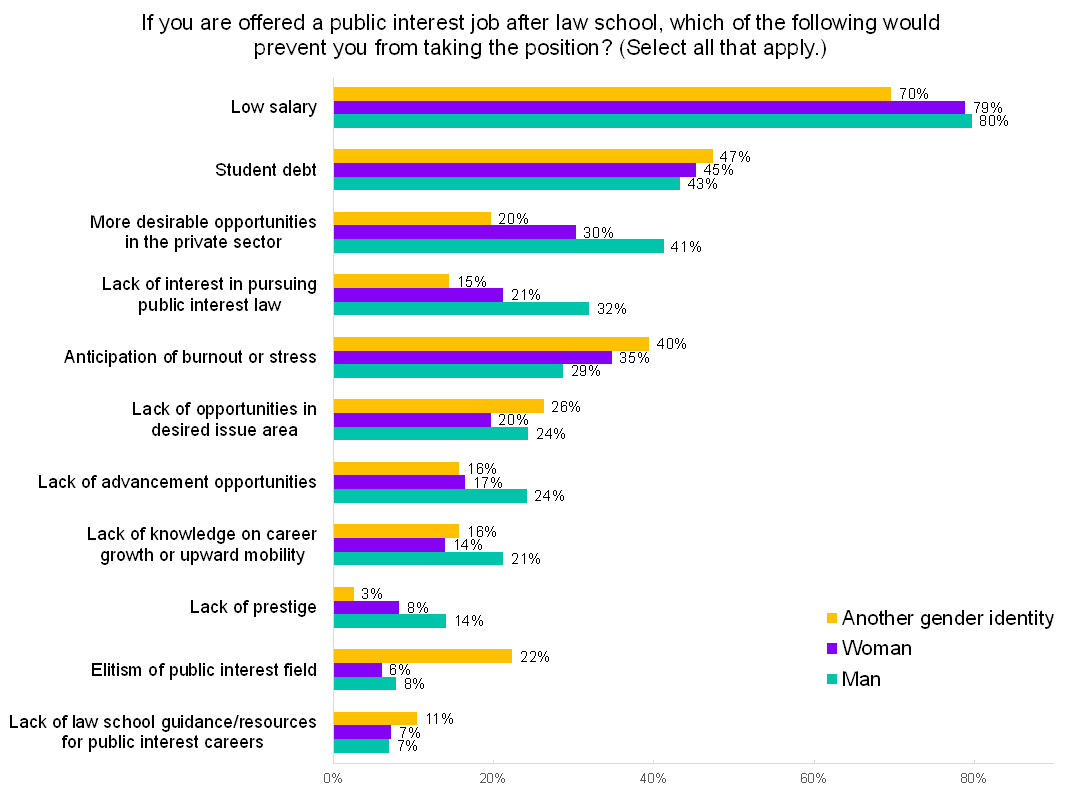Lawyers who practice public interest law are often driven by a desire to create positive social change and to advocate for marginalized or underserved communities. The work can be deeply rewarding as it allows lawyers to address issues like civil rights, environmental justice, housing, and access to healthcare. The sense of purpose and fulfillment from working on causes that align with personal values can be a significant motivator. However, there are potential barriers to pursing public interest work. To better understand these barriers, LSSSE partnered with Equal Justice Works in 2023 to survey students about how their law school supports public interest law, how their law school educates students on topics relevant to public interest law, and what barriers exist to pursuing a public interest law career. The joint final report that details the findings can be found here. In this blog post, we share some findings on the barriers to accepting a position in public interest law after graduation.
Law students were presented with a list of potential factors that would prevent them from taking a public interest law job after law school if they were offered one and instructed to select all the reasons that apply to them. Understandably, financial concerns were high on the list of reasons why students would choose not to accept a public interest law position. Nearly four out of five students (79%) cited low salary, and nearly half of students (45%) were concerned about their ability to pay off student debt. Interestingly, only about a third of students (34%) indicated they were motivated by more desirable opportunities in the private sector, and only a quarter (25%) cited a lack of interest in public interest law. This suggests students are attracted to public interest law, but their interest is tempered by financial considerations. One bright spot is that students do appear to be well-supported in law school guidance and resources for public interest careers. Only 7% of students cited a lack of this type of support as a barrier to pursuing a public interest career.

There are some notable gender differences in factors preventing students from taking a public interest law position. Men are more likely to see the private sector as more desirable and to have a lack of interest in public interest law. They are also more concerned than women and people of other gender identities about a lack of prestige and a lack of advancement opportunities or upward mobility in the public interest law sphere. People who do not identify as a man or a woman are less deterred by the prospect of a low salary, and they are less likely to see the private sector as more desirable or to cite a lack of interest in public interest law. However, they are the group most likely to be concerned about potential burnout or stress and to be concerned about elitism in the public interest field. Women tend to fall somewhere in between men and people of other gender identities in terms of which factors are most likely to deter them from taking a public interest job after law school. They are equally concerned about low salary as men, but they are less likely to cite a lack of interest or more desirable opportunities in the private sector as reasons not to pursue public interest. However, women are the least likely of all genders to cite a lack of opportunities in their desired issue area as a reason to avoid public interest.

Some barriers to working in public interest law—such as financial considerations—are concerns of a large majority of students. However, some concerns are more salient to certain subgroups of students. Employers interested in recruiting and retaining new public interest lawyers may consider tailoring their efforts to address these issues in order to increase their ability to attract potential future employees.
